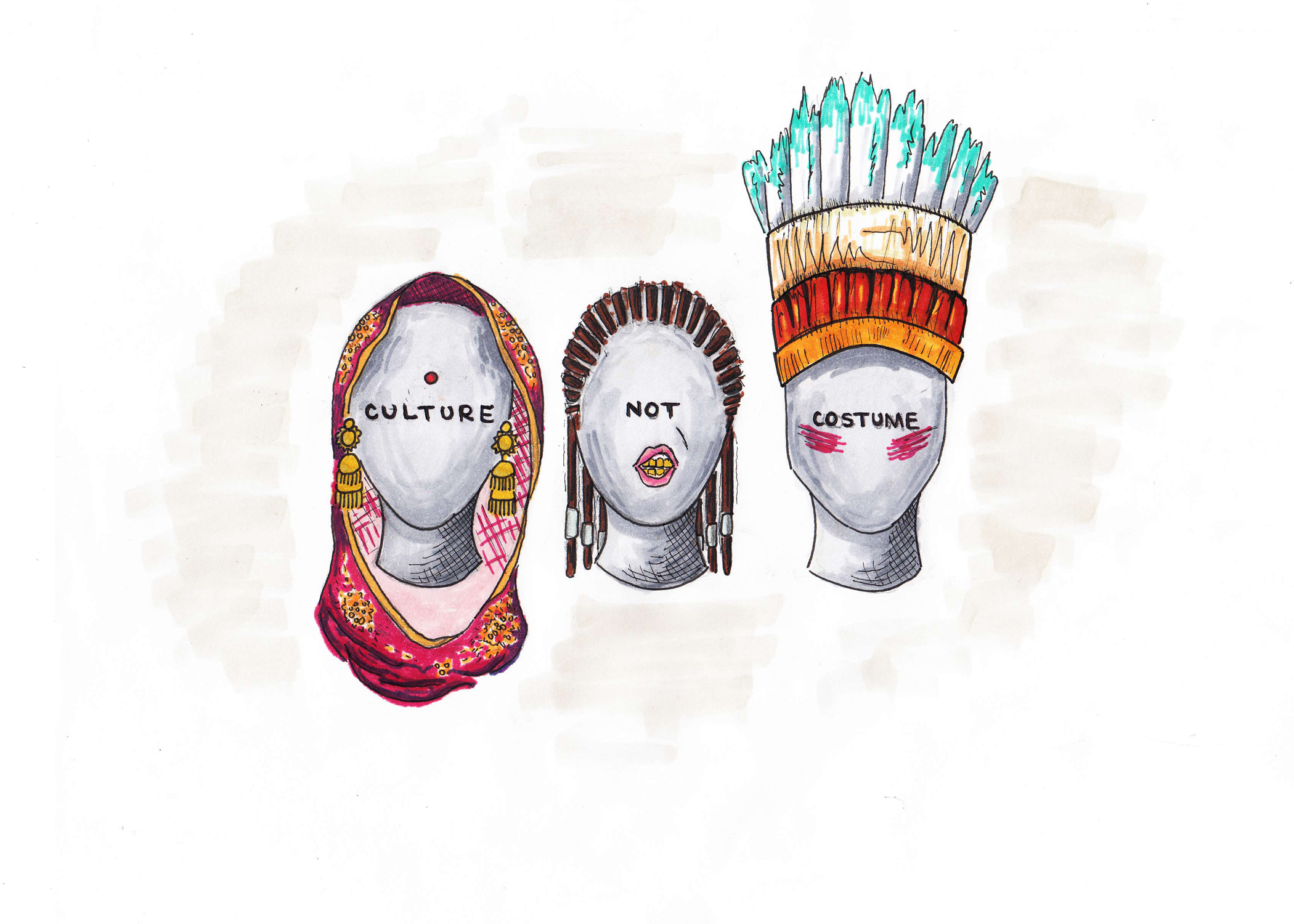Cultural gatekeeping might be more dangerous than cultural appropriation
Cultural appropriation isn’t straightforward enough to be regulated by the public, rather, the solution lies in self-awareness.
The debate on where the line between cultural appreciation and appropriation must be drawn continues to grow as social media users direct their energy toward reprimanding hairstyles.
Through a theological lens, there is a clear difference between cultural appreciation and cultural appropriation. Cultural appreciation is appreciating other traditions and heritages in order to learn and understand its practices and customs, with the intention of connecting with other members belonging to that culture. Cultural appropriation, on the other hand, is using a part of another culture without permission and mocking or misusing its practices or traditions. For example, attending an Indian wedding in a sari may be cultural appreciation versus wearing one for Halloween, which is appropriation. Largely, the definitive line between the two concepts is concerned with the given consent prior to indulging in a culture other than your own.
While the definitions of these two ideas are continually expanding, it seems society hastens to criticize any adoption of a different culture.
First and foremost, we must acknowledge that mocking or ridiculing another culture is unacceptable. There are instances where cultural appropriation is racist, worsens stereotypes, or exploits already marginalized groups. Some examples include: wearing blackface, a bindi, or a headdress to a festival, as well as imitating accents of another ethnic group.
The best remedy for harmful displays of another culture is through educating yourself. Learn more about other cultures to avoid the above scenarios.
Everyone is perhaps a bit sensitive about how the media portrays their culture. But I think we can all agree that not all media creators are good resources for learning about other cultures. You should look to members of that culture to gain an authentic and accurate insight into their culture.
The issue in all of this is when someone is being “cancelled” for innocent endorsements of another culture.
I understand that cultural appropriation is based within white colonialism, and many ethnic minorities have had their traditions and practices snatched or erased. However, it’s important to note that each culture is the product of other cultures throughout history. There is overlap between various cultures—each somewhat embedded in the other. This occurs through trade, immigration, social media, and more.
Using chopsticks, wearing African braids, applying henna, and doing yoga or martial arts are practices of other cultures that should not be penalized, as they don’t reinforce negative attitudes toward those cultures.
Cultural gatekeeping is an ineffective notion. Put simply, each member will never agree upon whether a particular adoption of their culture by an outsider is acceptable or not. Controlling each aspect of your culture diminishes progression and growth. This is an unhealthy precedent, as members of this culture will become less diverse, and fear of deviating from the norms will become common. Cultural gatekeeping divides communities and threatens cultural diffusion—a product of globalization—by fostering a sense of entitlement and control over one’s culture.
Cultural appropriation, while having legitimate cases, is often used to perpetuate “cancel culture,” especially via social media. The mentality that portraying a culture other than one’s own is toxic, persecutes people, especially prominent figures like celebrities, who are simply trying to embrace elements of another culture. There is a distinction between appreciating cultural ideals and making a mockery of them. However, two issues exist here. One—it is not always clear what a person’s intention is, and sometimes a lack of knowledge is to blame for their behaviour, and two—the general public does not always have enough information to determine whether a person is appreciating a culture, perhaps even their own, or if they’re “borrowing” traditions without permission. This confusion is what leads to controversy.
Cultural gatekeeping, cancel culture, and concern of accidentally falling into cultural appropriation may deter people from interacting with other cultures out of fear of scrutiny. This could ultimately cause people to keep to their own communities, and become apprehensive to trying new things and learning about others.
I believe that it is essential for people to hesitate before criticizing or “cancelling” others. Each side in this debate is responsible for seeking understanding from others. What is socially acceptable is constantly changing, but I believe we need to prioritize spreading knowledge before sentencing people to social annihilation.


very very nice
Your words evoke an expanse of emotions. Your unique insights add color to the discussion. Thank you for sharing your thoughts and contributing to this vibrant exchange.